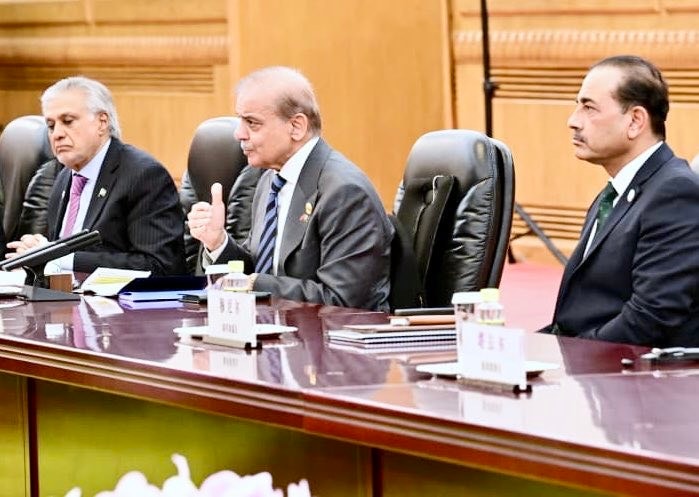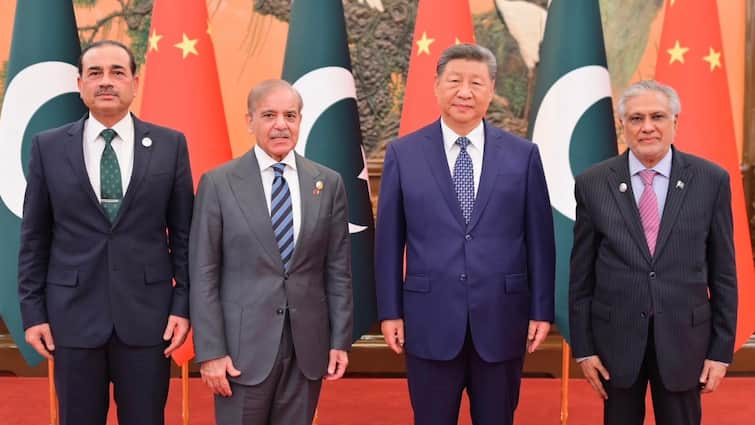Pakistan Prime Minister Shehbaz Sharif’s ongoing visit to China for the Shanghai Cooperation Organisation (SCO) summit has once again underscored the dominance of the military in the country’s political affairs. The presence of Army Chief General Asim Munir alongside Sharif during his meeting with Chinese President Xi Jinping has fuelled discussions about where the real authority in Islamabad lies.
Sharif travelled to China for the SCO summit held between 31 August and 1 September. He is also expected to attend the Victory Parade in Beijing on 3 September. On Tuesday, 2 September, he held bilateral talks with Xi Jinping, where both Munir and Pakistan’s Deputy Prime Minister Ishaq Dar were seen seated with him.

Munir’s Visible Role in Diplomacy
During the bilateral talks and subsequent photo opportunities with Xi, General Munir’s presence was unmistakable. Sitting on one side of the Pakistani Prime Minister, with Ishaq Dar on the other, Munir appeared central to Pakistan’s high-level diplomatic engagement. Following the meeting, Pakistan issued a statement asserting that under Xi Jinping’s leadership, the “all-weather strategic partnership between China and Pakistan continues to strengthen, enhancing peace, prosperity and connectivity.”
Army’s Dominance in Pakistan
Observers have long pointed out that Pakistan’s democratic governments have functioned under the shadow of its powerful military. The latest optics in Beijing have only reinforced that perception. Even in the past, the army has held sway over governance, with civilian administrations often struggling to exercise independent authority.
The trend was visible earlier as well when, following Operation Sindoor — a military setback for Pakistan against India — US President Donald Trump invited General Munir, not the civilian leadership, to lunch at the White House. Despite facing defeat in the operation, Munir was promoted to the rank of Field Marshal and awarded Pakistan’s second-highest gallantry medal, sparking ridicule that he had effectively decorated himself.
China’s Strategic Importance
China remains a key partner for Pakistan, with ties ranging from defence supplies to infrastructure investments under the Belt and Road Initiative (BRI). Reports also highlight Beijing’s support to Islamabad during Operation Sindoor, extending assistance in satellite imagery and communication.
For Beijing, Pakistan remains a critical ally, and Xi Jinping has sought to frame the relationship as one of deep trust and cooperation. The SCO summit also saw Indian Prime Minister Narendra Modi meet Xi Jinping, where he emphasised “mutual trust and sensitivity” as essential to India-China ties. Xi, during that exchange, described the two neighbours not as adversaries but as partners.



